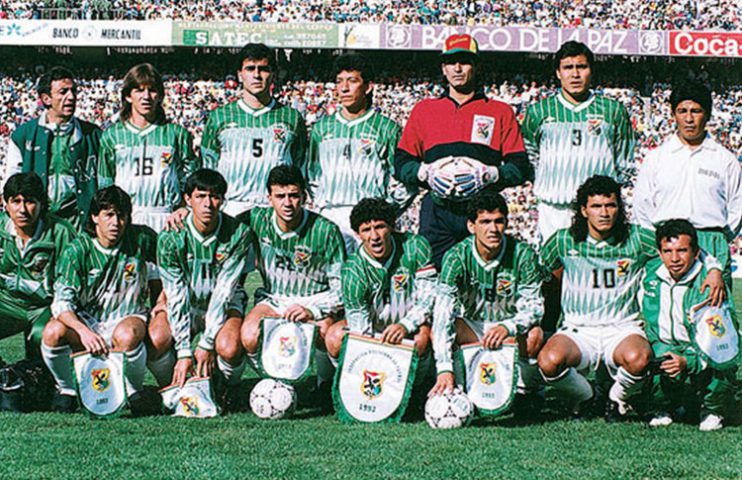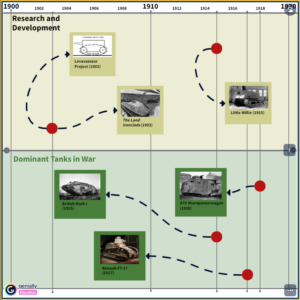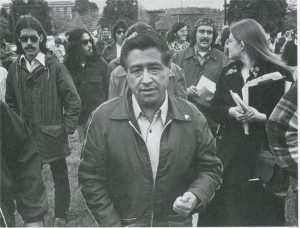Ten countries, eighteen soccer games, one dream. Qualifying for the World Cup. World Cup soccer occurs every four years in a rotation of different countries. The World Cup is the biggest soccer tournament in the world. It includes thirty-two national teams from all around the world that qualifies. These teams have the honor to represent their country in front of millions of fans around the world! Each country that has a national soccer team approved by FIFA (International Federation of Football Association) can become a World Cup qualifier. South American qualifiers for the World Cup are very hard to come by, as each national team has to play against the other nine countries. Each South American country plays a total of eighteen matches, which are nine home games in their respective countries, and nine other away matches in the country they play against.1

Eleven extraordinary players were chosen to defend the Bolivian soccer badge for the World Cup qualifiers that took place from August 1 to September 19, 1993. All of them made history together and each player helped achieve the dream. Moreover, three players of the national team played insanely well and carried the team on their shoulders. They were: Carlos Trucco, the 5’11” goalkeeper, Luis Ramallo, the “Pescador” being a lethal central forward scoring goals against most of the other teams, and the one and only captain of the team Marco Antonio “El Diablo” Etcheverry. This journey began way back in 1925 when the team was founded; the team began participating in international tournaments in 1926. The World Cup tournament began in 1930, and ever since,Bolivia has participated in the World Cup qualifiers every four years.2
On September 19, 1993, the sun shone brightly over the stadium Monumental Isidro Romero Carbo in Guayaquil, Ecuador, as fans from Bolivia and Ecuador entered the stadium to see the final qualifying match for the World Cup. Bolivia needed to win or at least tie the game in order to qualify for the World Cup and make their dream a reality. Bolivia had a total of 10 points, leaving them in leading position. Brazil had 9 points, and Uruguay had 10 points. This meant that Bolivia needed to tie or win in order to secure their participation at the World Cup in the United States in 1994.3
Before making it to the last game against Ecuador, Bolivia had a really tough journey through qualifiers. In the time frame of a month and a half to two months, Bolivia would call up all their players for a team training in order to be in shape and to know how to play as a team. They could only meet after that period of time, because each player belonged to an individual soccer club, and they had to play for their clubs as well. Each player was expected to remain in shape and demonstrate his skills in his respective club, in order to be called to the national team. When the players were together, they trained early mornings, at 6am or 7am for about 5-6 hours a day at high intensities. The coach, Xavier Azkargorta, was in charge of the team trainings and matches. Players had physical training, they had mandatory gym, and they would do their respective workouts in order to be at their best condition. Players also had to complete a psychological session two times a week in order to be at their best mental capacity and be focused on the goal. Finally, the coach, Azkargorta, gave some strategic lectures before the games in order to motivate the players and let them know their roles in the game. Players needed to be prepared to play in the high temperatures of Colombia and Brazil. There were great rivalries, and there were the legends of Brazil, Argentina, and Colombia. Bolivia needed to take advantage of the altitude in their home games in La Paz, Bolivia, at more than 12,000 feet above sea level.4
The journey was difficult, but Bolivia won 3 out of 4 home matches against prominent teams like Brazil, Venezuela, and Ecuador, and they also had some positive results from away games. All these results allowed Bolivia to be at the top of the table, leading Group B on the qualifiers. There was one more match to go to define the top two teams in Group B, in order to keep playing to qualify to the World Cup. The last match was against Ecuador as an away team. Three teams depended on this match (Bolivia vs Ecuador) and their own matches. Bolivia, Uruguay, and Brazil depended on the results of this match. Bolivia had a total of 10 points, Brazil had 9, and Uruguay had 10 points. Bolivia only needed a tie to secure a place and go on to the next round. The other match was Brazil against Uruguay. Once again, Uruguay just needed to tie in order to secure their place and Brazil only had the option to win in order to secure a spot. Both matches began at the same time and the three countries were fighting to keep playing for a World Cup spot!5.]
The ball started rolling through the green grass of the stadium Monumental Isidro Romero Carbo in a difficult match between Ecuador and Bolivia. Both teams on the field were running around, passing the ball to their teammates, and using each coaches’ tactics to achieve a common goal….to score. Everyone was frantically nervous in the stadium, moving their heads from side to side enjoying the game. Javier Azkargorta was screaming to the players to move faster and do the strategy they had practiced all week during training. Azkargorta relied heavily on his three great players, but surprisingly the entirety of the Bolivian team throughout the tournament showed great unity and that together as a team, they played great.6

“El Diablo” Etcheverry began making his moves dribbling past many Ecuadorian players and passing the ball around. “El Pescador” Luis Ramallo tried shooting the ball to the back of the net whenever he could. Nevertheless, the Ecuadorian goalkeeper was saving everything. The match continued…it was pretty close…both Bolivian and Ecuadorian fans supporting and screaming chants to their players. You could hear a clear and loud “BO-BO-BO-LI-LI-LI-VIA-VIA-VIA VIVA BOLIVIA!” Time went by and Bolivian players began to feel more and more nervous every time. It wasn’t until minute 44 where Ecuador tried to score a goal and made a very dangerous move. The great goalkeeper Carlos Trucco stopped the ball and began a counter attack play. He threw the ball straight to Erwin Sánchez’s feet to start running. Erwin goes past one player, does a magnificent touch with Etcheverry, and continues his hustle through the field to find himself positioned in front of the goal…and took a shot. It was a powerful shot straight to the goal and the goalkeeper barely stopped it. The goalkeeper let it bounce, and the one and only William Ramallo appeared to blast the back net and score! All the people in green jerseys and all the Bolivian fans shouted “GOOOOOOOL” running around celebrating with one another. William Ramallo scored a goal that marked history for Bolivia and for Bolivian sports. This goal not only meant that Bolivia was winning the game, but Bolivia was going to the World Cup! The match went on and Bolivia kept their same style of playing to keep this result and achieve the dream they had, to qualify for the World Cup. Getting through the end of the match, Ecuador scored a goal and equalized the game. Chills ran through every Bolivian player as they felt nervous again for the last minutes. Their dream was so close, but the final minutes were forever! Players ran with all their heart defending their goal to not let Ecuador score another one. And at last…the match finished! Bolivia for the first time in history qualified for the World Cup. To the World Cup USA 1994! Tears of joy all around, hugs, kisses, and smiles on every Bolivian around the world. The Bolivian national team made it!7
It was a Friday with an infernal heat: almost a hundred-degree in the stands, and it felt even more atrociously hot on the field. Hours before, the enormous stadium, Solder Field in Chicago, was replete with people holding flags from their respective countries; many Bolivian and German flags were held proudly as they waved through the air. Faces painted with their country colors, smiles all around, different languages spoken and many more cultural differences before the opening match.

Everyone eagerly waited for the start of the World Cup, even in a not soccer-oriented country of the United States. Many of those people talked about the inaugural game. Bolivia was about to face the defender of the title, the powerful Germany and its stars. At this precise moment, Bolivia was about to begin their first World Cup ever! After they lost their inaugural match against Germany, suffering a tough loss 1-0, Bolivia demonstrated what they were made of. Their following match was in Boston, against South Korea, where Bolivia tied 0-0 with a remarkable performance. That was the first point won for Bolivia at the World Cup. People regardless supported the national team and they saw each match with a feeling of pride as it was a historical moment. Their last match was in Chicago against another preeminent country, Spain. Consequently, this difficult match led to numerous goals against Bolivia, and they suffered another tough loss of 3-1. Moreover, due to these results Bolivia did not qualify to the following round of the World Cup and returned home. Although they came back with these results, everyone saw them with pride and they cheered for them on their return as they were heroes in the eyes of their people.
- Eduardo Bolaños, “Histórica clasificación de Bolivia al Mundial 1994,” September 2015, Conmebol (website), http://conmebol.com/es/19092015-1041/historica-clasificacion-de-bolivia-al-mundial-1994. ↵
- Carlos Mesa, “Bolivia en la Copa del Mundo, Capítulo 3. Estados Unidos 1994,” July 14, 2014, Historiadelfutbolboliviano.com (website), https://historiadelfutbolboliviano.com/2014/07/14/bolivia-en-la-copa-del-mundo-capitulo-3-estados-unidos-1994/ ↵
- Gabriel Caero, “Bolivia, a 25 años de la clasificación a EEUU 1994,” Los Tiempos (Cochabamba.), September 17, 2018, national edition. ↵
- Encyclopedia Britannica, May 15, 2019, s.v. “World Cup,” by Amy Tikkanen. ↵
- FIFA, Last modified 2019, https://www.fifa.com/worldcup/archive/usa1994/teams/team=43923/matches.html ↵
- Joaquin Cavanna, “La Bitácora del Mundial: Bolivia y sus 15 años entre el cielo y el infierno,” June 2009, Goal (website), https://www.goal.com/es/news/2123/colombia/2009/03/31/1183063/la-bit%C3%A1cora-del-mundial-bolivia-y-sus-15-a%C3%B1os-entre-el-cielo. ↵
- Jaime Ayllón, “Mundial ‘USA 1994’: Todo comenzó en un modesto hotel,” laRazón (La Paz.) (website), September 17, 2018, national edition. ↵



17 comments
Joshua Marroquin
First, I want to say this is a well-structured articled that kept me entertained throughout the entire time I was reading it. I am a big soccer fan, so I know how important the World Cup is, since it only comes around every 4 years. Because of this I can understand how excited all the fans were knowing that Bolivia qualified for the World Cup. It is a once and a lifetime opportunity that the Bolivian team had, which made it the match all that better since they would’ve risked anything to win.
Eugenio Gonzalez
As a soccer fan, I can imagine the Bolivian people’s excitement when they saw their team in the world cup. Reading this article gave me chills as you could imagine the player’s and fans’ nervousness during the qualifiers match against Ecuador. Before reading this article, I had no idea Bolivia had qualified for a world cup and faced teams like Spain and Germany.
Madeline Bloom
Soccer has never been one of my favorite sports although I used to play. But this article caught my eye. I would have never guessed that Bolivia would have had a World Cup. The World Cup is the goal for every team in the league and its every dream for every player. Whether they are professional or not…you want your team that you associate with in it.
Vivian Urrutia
As a passionate soccer player, myself, this article gave me chills in every way possible. When my country, Honduras, qualified to the World Cup it brought my country a joy and peace never seen again since that day. It is amazing how on national team with such a small country like Bolivia managed to not only qualify to the World Cup but to win it. Like you expressed in the article the journey must have been difficult for them what with courage they overpassed every circumstance. It was a very interesting article and choice of topic.
Juan Asfura
As a Honduran I can say that qualifying to a World Cup can be something to be very proud of, Honduras has only qualified to 3 world cups before and also has only scored one goal in 2014 against Ecuador. It was one of the most important achievements a Honduran has every done. Qualifying to a World Cup can bring the whole country together and just enjoy the moment which is very difficult to achieve. I really enjoyed this article since I understand how important it may be to qualify to a World Cup as a latino.
Sherisa Orozco
This article sparked my interest, the title was a hook. I had no clue Bolivia won a World Cup. It was interesting to read about the team and its efforts. The World Cup is a huge accomplishment for every soccer team. After reading Bolivia it was a true inspiration to many other teams who are never on top. Great article good job!
Davis Nickle
I have never really been much of a soccer fan but this article definitely did manage to grab and hold my interest. From my understanding the World Cup is a really big deal to many countries outside of America, so I can’t even imagine the sheer excitement that Bolivia must have felt upon seeing there team come home victorious. I really enjoy reading underdog stories like this.
Nicolas Llosa
While reading this article I felt a huge connection. I’m from Lima, Peru and I also experience these tough South American qualifiers. Peru didn’t qualify for the world cup since 1982 and actually qualified for the 2018 world cup. When I read the 7th paragraph, when you were describing the important goal Bolivia scored in order to qualify for the world cup of 1994, I remember the goal that Peru scored in order to qualify for the World Cup Russia 2018.
Marcus Saldana
With me being so passionate about soccer, I loved reading every single sentence of this article. Everyone loves a good under dog story. The qualification was well deserved for Bolivia. Finally all of their hard work paid off. The game against Ecuador felt more like a world cup finals match than just a qualification match with the great commentary of play by play, but also not making it boring by hitting just the highlights of the game very well. The only things I wish there was more of was a little more detail of the first round of the world cup games.
Kacey Diaz
This was a good article, however, I do feel that there was a little more emphasis on what the team did to prepare for the World Cup. This did give me a little more insight into the World Cup and what goes into qualifying for it. I think more could have gone into the actual game rather than the preparation but it was still good and informative.